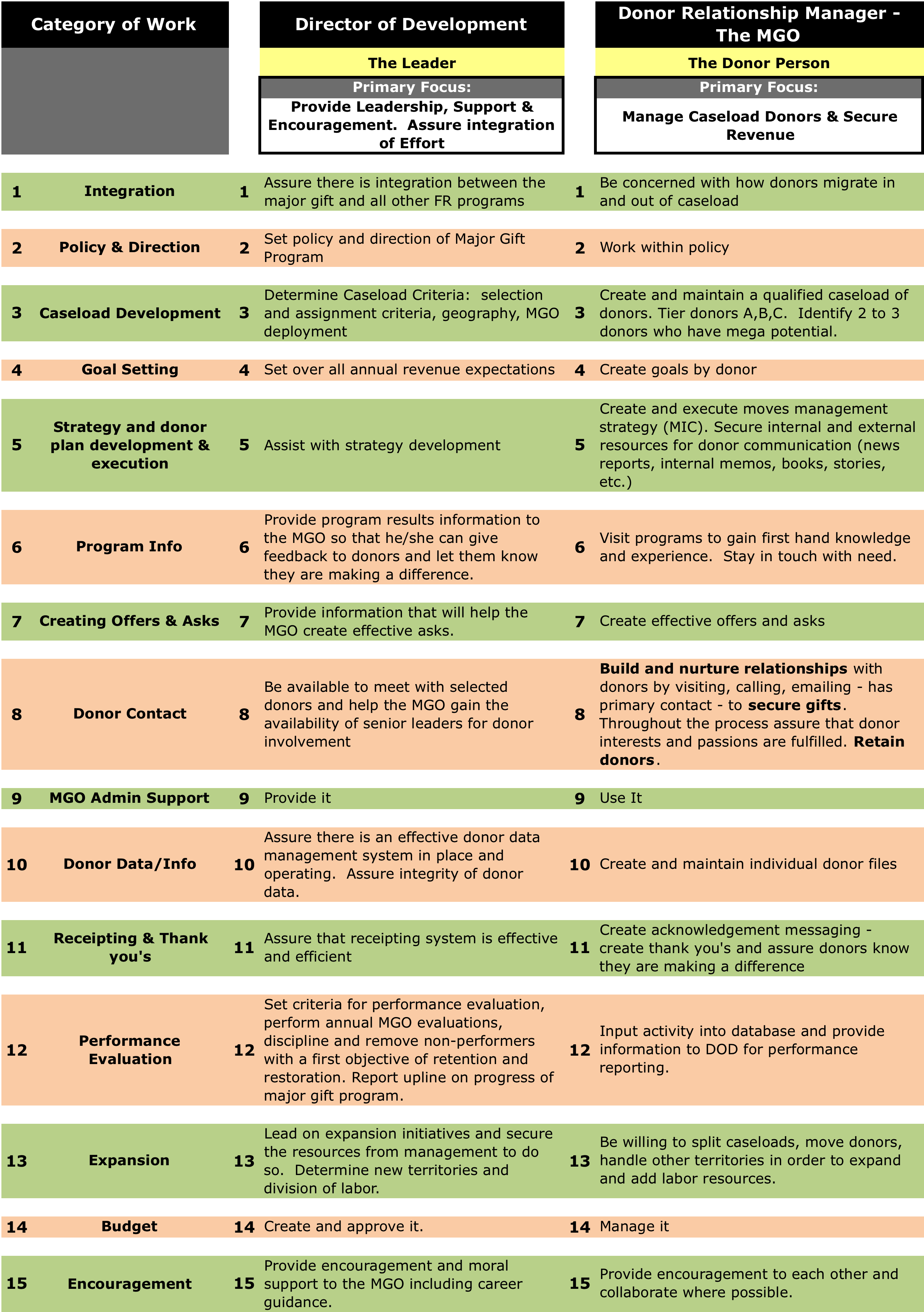We feel that part of our job with this blog is to critique, yet also to provide concrete ways for leaders and managers to support major gifts. Sometimes Richard and I can be a little harsh with you. I think that’s because our daily work is to come alongside mid, major and planned giving officers and not only give strategy, focus and guidance but to be their advocate as well. Our job is to make front-line fundraisers successful, and that’s tough work.
Being the advocate for the front-line fundraiser means that, from time to time, we call out some bad behavior we see from leaders and managers who don’t show support for their major gift staff as much as we’d like to see.
However, today, I want to acknowledge just how tough it is to be a VP or Director of Development for a non-profit. Richard and I know first-hand how difficult of a position it is, because we both had these roles many years ago when we worked at separate non-profits.
Here’s why it’s so difficult:
- You have to essentially be an expert at different types of fundraising strategy, i.e., direct response acquisition, cultivation, online, social media, mid-level, events, major gifts, principal gifts, planned giving and capital campaigns.
- You have to be a good manager – this means you have to really like getting results through other people. And you have to take care of all those personnel problems with staff. You have to advocate, train, counsel and encourage your people.
- You have to be good at navigating the internal politics at your organization and advocate for development while creating good relationships with other departments.
- You have to “manage up” with your CEO or ED – if they have a personal portfolio of donors, you have to manage it and get them to build relationships and ask for significant gifts.
- Typically, the DoD has to manage their own portfolio of donors as well.
- Meetings – all this requires that you’re stuck in a plethora of constant meetings, many of them that have nothing to do with your daily work, which essentially takes you away from doing all the things I mentioned above that you’re responsible for.
Whew! Not easy, right?
There’s probably more here that I’m missing, but the point is that it’s almost impossible to do this job… unless you have good people working with you to implement all these areas.
And this is key.
With all the responsibilities you have, being able to focus on what you’re good at and manage your people is essential if you’re going to be an effective Director of Development.
Perhaps you’re not an expert about direct-response, social media and online fundraising. Hire an experienced agency to do it, or hire someone in-house to lead it. Perhaps you don’t have the time to get your mid, major and planned giving program organized and to meet every week with your staff. Hire someone who can do that for you.
As a manager, you have to lead in your area of expertise and for all the other work, get results through the work of others who are better at it than you.
I know this may sound a bit self-serving, but the best major gift programs we’ve encountered are the ones where the DoD allows others to manage that program, and he/she understands the value of someone else providing coaching, training, focus and accountability so their mid, major and planned giving officers can thrive.
There’s too much in your job to do this effectively yourself.
You can’t do it all. If you can let others implement the work that is needed to be done, and you trust it’s going to be done right, you’ll finally sleep well at night. (Tweet it!)
Jeff
For more about fundraising management, check out our new book, It’s Not JUST About the Donor.







Hire?! With what money?